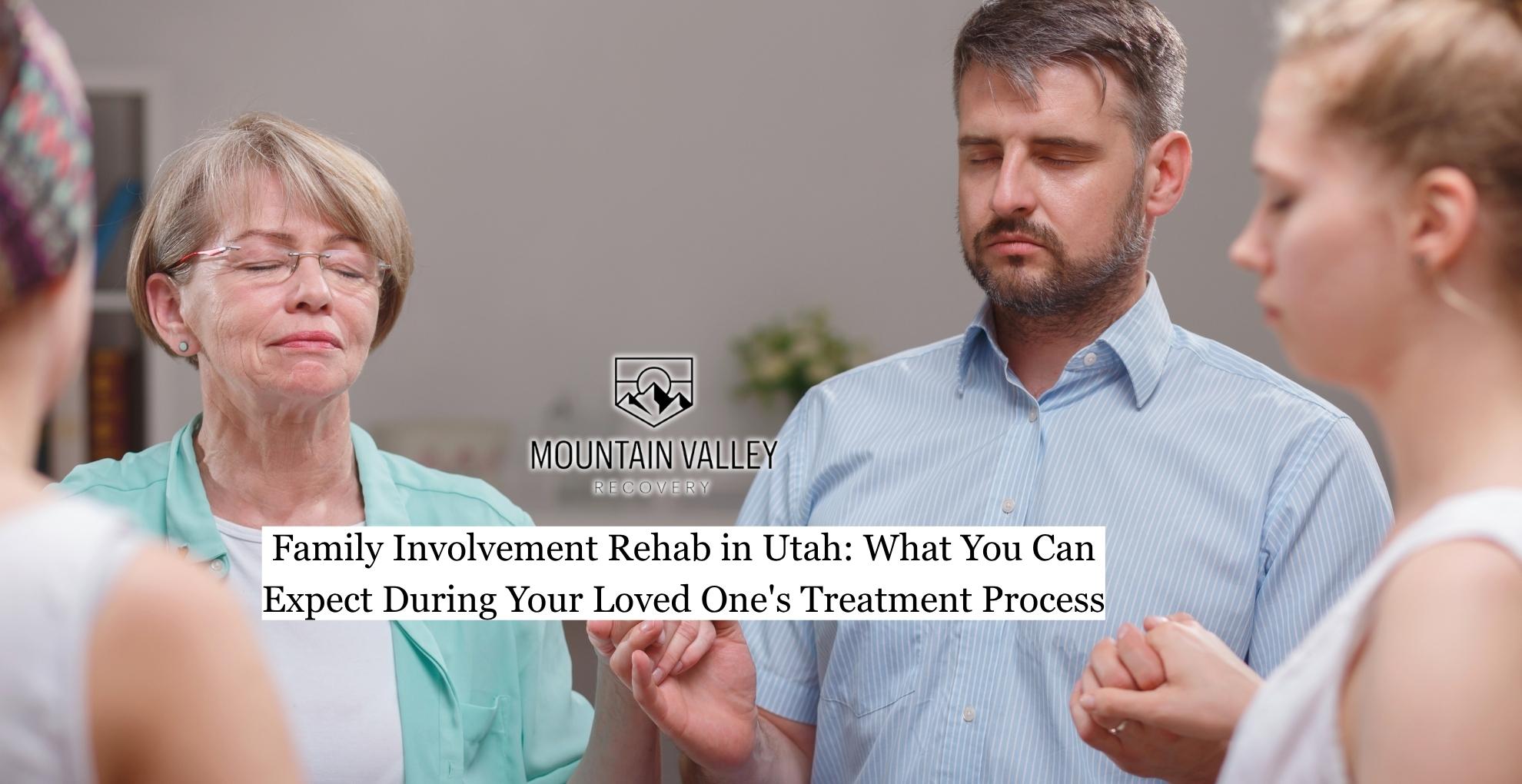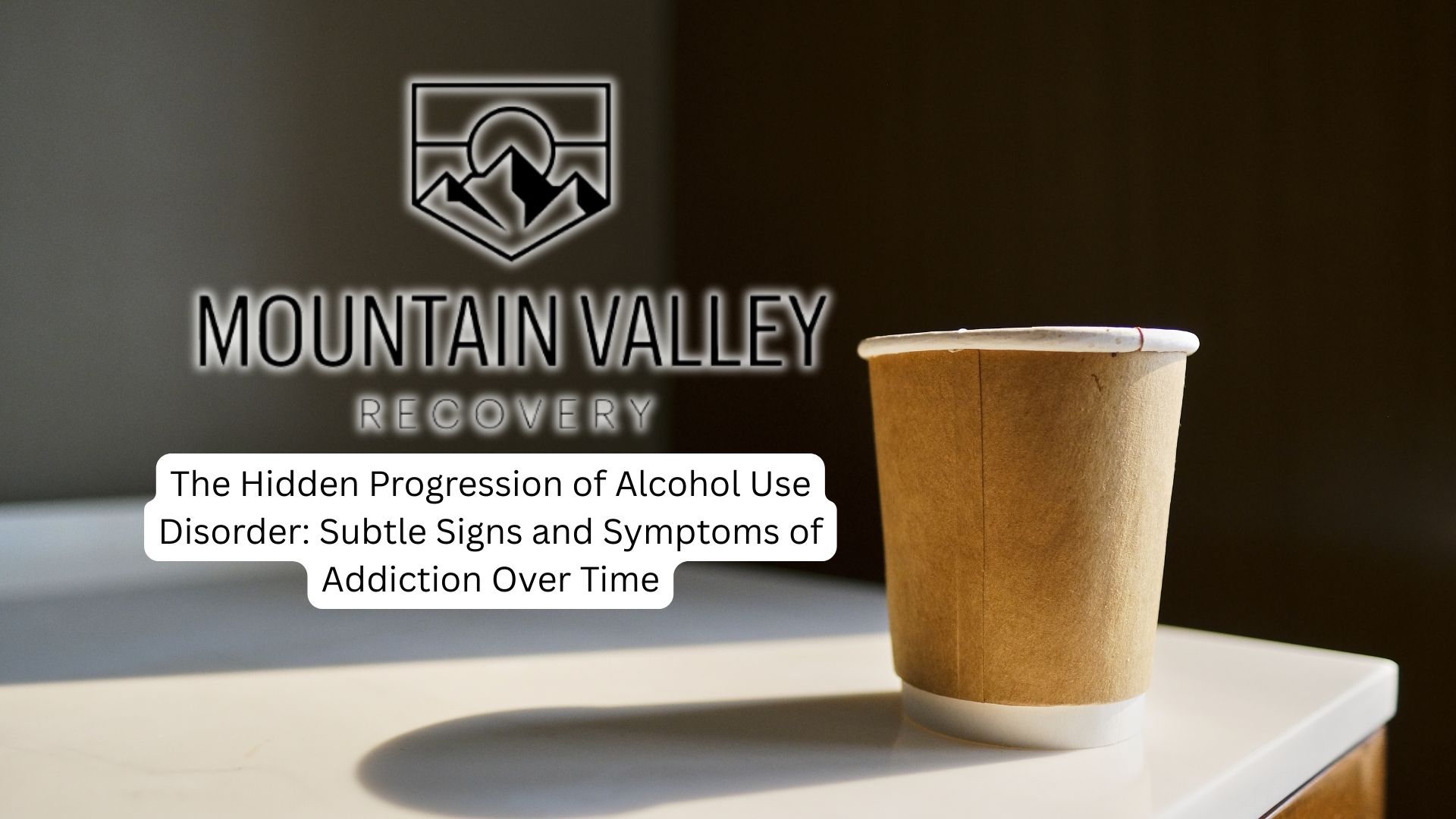When a loved one begins addiction treatment, families often wonder what their role should be. In Utah, family involvement rehab programs combine the state’s tranquil, beautiful scenery with healing therapy when everyone participates in the recovery process. Family therapy is essential because drug or alcohol addiction affects more than one person; it touches entire households through emotional stress, communication breakdowns, and unresolved trauma.
Mountain Valley Recovery specializes in family therapy for adult men, using our unique experiential therapy approach tailored to male needs to create an environment where your family member feels in charge of their recovery. We believe you are an essential bridge to therapy, as the first steps toward receiving necessary treatment come from a loved one bravely confronting the disorder head-on.
This guide explains what you can expect for you and your family during the treatment process, from the first call to aftercare support. You’ll learn how programs integrate loved ones’ needs through therapy, education, and open communication; how to navigate insurance verification; and what lasting recovery looks like when families stay engaged.
Quick Takeaways
- Evidence-based therapies combined with family involvement lead to the best outcomes in treatment and recovery.
- Insurance verification and admissions support help reduce the stress of navigating the financial process.
- Aftercare, relapse prevention, and self-care are the key ingredients sustaining long-term success.
- Families who communicate, learn, and grow together create the best foundation for lasting recovery.
Understanding the Role of Family in Drug Addiction Treatment
Family members play a decisive role in motivating, supporting, and maintaining recovery. Research into family therapy shows that individuals are more likely to complete treatment and stay sober when their loved ones are engaged in the process. However, in clinical practice, particularly among youth substance abuse disorder (SUD) sufferers, it is underutilized. Families play a role in:
- Provide emotional support during detox and therapy.
- Participate in family counseling to address relationship issues.
- Reinforce boundaries and healthy routines at home.
- Help identify relapse triggers early.
This participation transforms the treatment experience from an isolated effort into a shared journey toward lasting recovery, giving you a crucial part in your loved one’s continued progress. Addiction treatment is most effective when families are active partners. Studies show that rehabilitation with youths and young adults is significantly more effective with just one family therapy session. On average, young adults who have family therapy will stick to treatment a median of 11 weeks, 2 weeks longer than those without it.
Co-occurring mental health conditions
Many clients struggle with both substance use disorders and underlying mental health conditions, known as dual diagnosis or co-occurring disorders. Family sessions help relatives understand anxiety, depression, or trauma that may drive addiction, reducing blame and promoting empathy.
The First Step: Recognizing the Problem and Taking Action Towards Recovery Processes

You should be on the lookout for potential warning signs and stay observant if they start to escalate while you are planning your family member’s recovery. These signs often manifest as:
- Secretive behavior or social withdrawal
- Mood swings, aggression, or depression
- Unexplained financial or legal troubles
When the time comes to take action, families often begin with a professional intervention or family counseling. Compassionate confrontation guided by a therapist can motivate change without deepening shame and make your loved one feel like the intervention is a personal attack.
Insurance verification and admissions
If you are worried about the financial side of substance abuse treatment, don’t let that stop you from investigating all your options. Many Utah treatment centers, like Mountain Valley Recovery, accept Utah Medicaid and provide insurance verification to determine coverage for treatment programs. Our admissions team helps families understand benefits, co-pays, and timelines so financial stress doesn’t derail early progress.
Choosing Between Inpatient vs. Outpatient Treatment Programs
When seeking addiction treatment, one of the first decisions families face is whether inpatient or outpatient care is the best fit. Below are some of the differences to consider.
| Category | Inpatient and Residential Treatment | Outpatient Treatment (IOP/PHP/Lower Intensity Programs) |
|---|---|---|
| Living Arrangement | Clients live at the rehab facility full-time during treatment. | Clients live at home and attend scheduled sessions at a treatment center. |
| Level of Supervision | 24/7 medical or therapeutic supervision. | Regular check-ins; support available during scheduled hours only. |
| Treatment Focus | Intensive focus on clinical care, stabilization, and behavioral therapy in a controlled setting. | Focus on relapse prevention, coping skills, and reintegration into daily life. |
| Best For | Severe addictions, dual diagnosis, or unsafe home environments. | Mild to moderate addictions or those with strong family and social support. |
| Duration | Intensive inpatient services will last a few days to a couple of weeks, while residential programs are longer stays, typically lasting 30–90 da.ys | Flexible; often lasting a few weeks to a few months, though some can last for longer |
| Family Involvement | Family visits and structured family therapy sessions. | Frequent family counseling, education groups, and home-based practice. |
| Work/School Flexibility | Clients take time off from work or school. | Patients can continue many of their work, school, or family obligations. |
| Cost | Generally higher due to room, board, and round-the-clock care. | Lower overall cost |
| Goal | Build a strong foundation for sobriety in a safe environment. | Support long-term recovery while maintaining everyday responsibilities. |
Look for centers using evidence-based and trauma-informed therapy for your family member:
- Cognitive Behavioral Therapy (CBT)
- Dialectical Behavior Therapy (DBT)
- Experiential therapies such as art, equine, or adventure therapy
Our facility combines these with family-friendly features, involving you in your family member’s recovery through things like weekly family sessions and multi-family workshops.
What to Expect During the Initial Admission Stage of the Recovery Journey

During the admission stage, things will be based on the severity of symptoms and substances involved. If medical detox is required, families may be asked to limit visits until the loved one is stable. Detox teams monitor withdrawal symptoms while keeping families informed. During intake, clinicians assess substance use, mental health, and trauma history. Families often provide background insights to shape an individualized treatment plan as they undergo the full continuum of treatment stages.
| Stage | Family Involvement |
|---|---|
| Detox | Limited contact; updates via staff |
| Intensive Inpatient/Residential | Weekly visits & therapy |
| Partial Hospitalization/Intensive Outpatient | Joint counseling & check-ins |
| Aftercare | Alumni & support groups |
Alcohol Rehab
For Alcohol rehab, intensive intervention may be necessary to prevent severe and life-threatening symptoms like Delirium Tremens (DTs), which would have your loved one starting in the detox stage of treatment.
Opioid Rehab
After intake assessments, treatment may include medication-assisted therapy (MAT) using approved medications such as buprenorphine or methadone, combined with behavioral therapies like CBT or group counseling.
The Active Treatment Phase for Substance Use Disorders
For your involvement in the active treatment phase, you will attend family therapy sessions with your loved one, guided by licensed therapists or social workers. These sessions will address enabling patterns, resentment, and boundary setting.
At our Utah treatment facility, families join group therapy or outdoor experiential sessions to practice empathy and problem-solving.
Your Importance in the Process:
- Attend all scheduled sessions.
- Avoid lecturing or rescuing behaviors.
- Encourage personal responsibility and celebrate progress.
Supporting Addiction Recovery at Home: Aftercare and Lasting Recovery
After treatment, the healing process continues at home. Aftercare plans should include family participation to reinforce the best aspects of therapy in a home environment.
Through our alumni program at Mountain Valley Recovery, your loved one maintains essential human connections with our graduates to stay the course and remain accountable to recovery. You can help your loved ones rebuild daily routines: healthy meals, exercise, consistent sleep, and participation in local community or faith-based activities. We encourage families to explore spiritual or value-based living, whether through church, meditation, or service, supporting long-term sobriety, spiritual growth, and a productive life.
Looking Ahead With a Proven Approach
Success isn’t just sobriety; it’s also about healthier relationships and emotional stability. Your family should focus on improving communication and trust, consistent therapy attendance, and supporting the loved one with meaningful engagement in work, school, or the community.
Long-term recovery means accepting growth as a lifelong journey. Families who stay active in education and aftercare give their loved one the best chance for sustainable, successful recovery and personal growth for everyone involved.
How to Get Started With Family Involvement Rehab: Utah-Specific Steps
If you aren’t sure where to start, use these simplified steps to help you keep track of what you need to do to help your loved one overcome the challenges of addiction recovery. No one can truly improve without help; it usually takes a combination of kind acts from others and a strong belief in something greater than yourself, like a higher power.
- Contact or call admissions teams at licensed Utah rehab centers.
- Request insurance verification and learn which levels of care are covered.
- Prepare emotionally, plan visits, gather encouragement letters, and learn about your role in family sessions.
- Join an online or local family support group to build resilience. Resources like findtreatment.gov and Psychology Today can help you find local facilities and support groups in your area.
FAQs for Family Involvement in Addiction Therapy
How often do families meet during treatment?
Most Utah rehab centers hold family therapy weekly, either in person or via video. Sessions help loved ones learn communication and boundary skills. Treating patients with family therapy dramatically improves recovery outcomes and should be part of a treatment plan for your loved one whenever possible.
Can families join outpatient programs?
Yes. Intensive outpatient (IOPs) and Partial hospitalization (PHP) programs often include family activities or educational groups designed for spouses, parents, or adult children. Family therapy is highly encouraged for substance abuse disorder to help address underlying environmental and relationship issues that may lead to harmful using.
What if my loved one resists family involvement?
Therapists encourage gradual participation, starting with education workshops or one-on-one family counseling, to reduce defensiveness. It’s important to offer your love and support, but not to be forceful. You should also look after your own needs and respect boundaries while trying to help your loved one.
Is insurance verification required before admission?
It’s recommended. Insurance verification lets providers know what addiction treatment and mental health services are covered, avoiding unexpected costs. Many treatment facilities accept Utah Medicaid, and you can find them by searching with the state’s eligibility lookup tool. Mountain Valley Recovery accepts Utah Medicaid for our male-focused drug rehab program.
Why You Matter At Every Step of the Process
Family involvement transforms addiction treatment into a shared healing journey and spiritual growth. In Utah, we recognize that the path to sobriety is not only about detox or therapy, it’s about rebuilding trust, communication, and connection among loved ones.
By learning what to expect during the treatment process, verifying insurance early, and participating in therapy and aftercare, families help create the supportive environment essential for long-term sobriety. Every conversation, visit, and show of encouragement becomes part of your loved one’s recovery journey and your family’s lasting growth. Start your journey with us, and call for help today.





